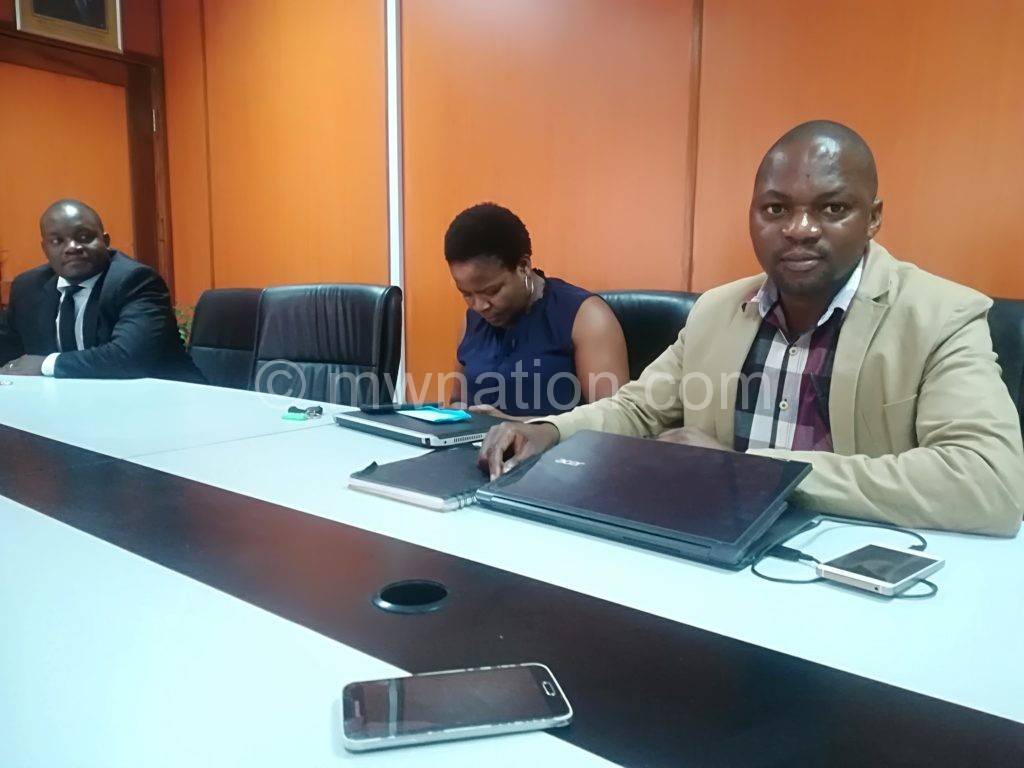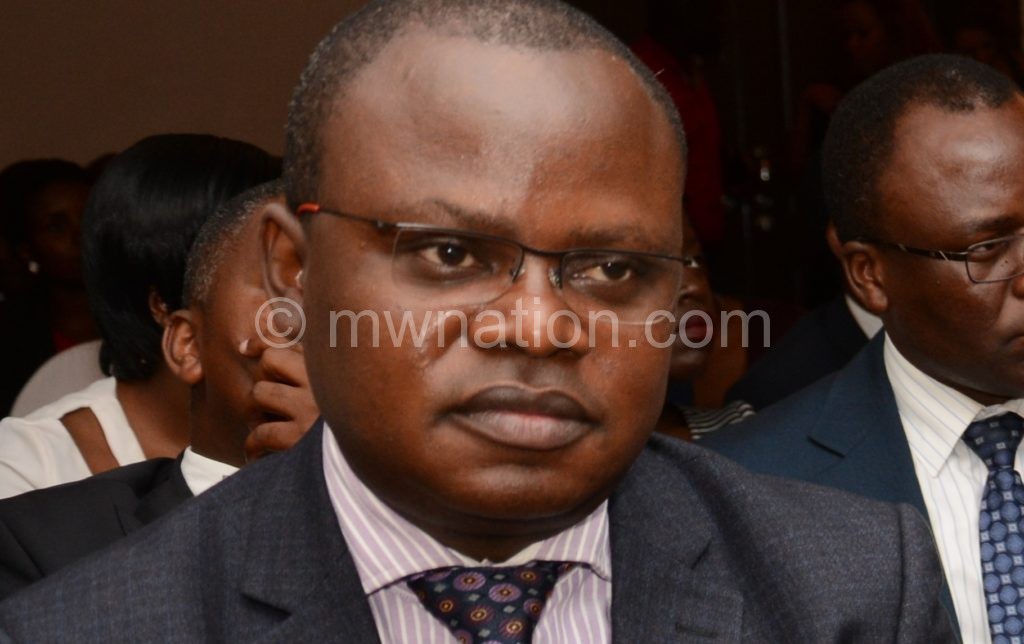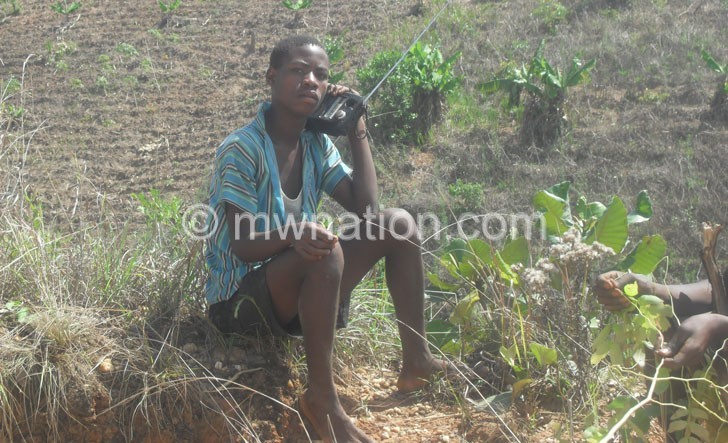Living in Malawi, served by Mozambique
Lack of FM radio signals in Muloza is forcing people to listen to radio broadcasts in Mozambique, missing out on vital information broadcast by the Malawi Government. So what are the consequences? Our staff writer ALBERT SHARRA finds out in this three-part series on telecommunications.
To some locals in Mujiwa Village, Group Village Headman Ndala in Muloza, Mulanje, the location and positioning of their village between Mulanje Mountain in Malawi and Milanje Mountain in Mozambique was a natural error that will continue to haunt them forever.

The community lives in pain. The residents feel isolated and neglected. In their eyes, they see themselves as an abandoned community.
They may be right. For 21 years now, the communities hadly have access to any local radio programming on local stations on Frequency Modulation (FM) signal.
Sometimes they listen to Malawi Broadcasting Corporation (MBC) Radio One on a weak and cracky Amplitude Modulation (AM) signal only.
MBC Radio One is Malawi’s oldest radio station and according to studies; the country’s first president Dr Hasting Kamuzu Banda designed it to be the sole source of information for every Malawian.

Journalists and authors Edward Chitsulo and Grey Mang’anda reveal in their co-authored paper titled Origins, Development and Management of the Newspaper Industry in Malawi, published in Journalism Practice in Malawi: History, Progress and Prospects in 2011 that Kamuzu took media as a threat to his government, and so, he employed systems and mechanism that gave his government more control over the press.
They say, he bought all the powerful newspapers. The monopolisation was also extended to the only radio station, MBC Radio One. This, the authors argue was to ensure that the press “churns out only government propaganda”. And indeed, this was achieved until the last day of his tenure. He left office when the country had only one national radio station.
However, the advent of democracy in 1994 brought with it media liberalisation and creation of private media and pluralist media. But the eventual jubilations and ululations that followed the dawn of multiparty dispensation in Malawi in 1994 hardly meant a complete liberation to the people in Mujiwa and Muloza as a whole.

Certainly, the liberation of media space meant every Malawian had been rescued from a despotic bondage of limited choices, which includes access to multiple media options.
The transformation, of course, meant multiple choices on sources of information, which human rights defenders say help citizens in making informed decisions.
But this media multiplicity only read in bold letters at Capital Hill. For people in Mujiwa, their opportunity to enjoy such a freedom was still in confinement, and sadly, 21 years later, the story is still the same.
“Why should we celebrate referendum or democracy when our access to communication services is still limited,” says Bigborn Juwawu, a villager in Mujiwa.
Juwawu is also the chairperson of Nanchidwa Forest Conservation Committee, a grouping of locals who came together to conserve forests in the area.
He is angry that for 21 years, no one has stood up for their rights to enjoy multiple sources of information that fellow Malawians enjoy on FM signal. Today, even MBC Radio One is on FM signal.
Since 1997, the year that Malawi welcomed the FM radio signal which first accommodated MBC Radio 2, the country has had more than one radio station on the signal.
According to an updated Macra’s Information and Communication Technology (ICT) indicator report, since 2014, the country has had 50 operational radios stations on FM band. The figure rose to 52 last year and many others are coming.
Just over a year ago, Macra, which is mandated to regulate broadcasting in Malawi, issued 50 licences for new radio stations. Some have already rolled out their service.
“From the 50 new radio stations, we get the assurance that a lot more people are going to get information they need,” director of information Gideon Munthali told the press during the last World Radio Day commemoration in Mzuzu.
“We, as a society, are going to benefit from diversity of the programming that is going to come from the 50 more radio stations.”
However, to people in Muloza, Munthali was not talking to them. To date, they have no access to any of those radio stations. The future is not even promising.
During our visit to Mujiwa Village, we sampled 22 households and at each household, we found a radio on. It was easy to distinguish a volume nobe from tuning one. A tuning nobe on most radios looked brand new. They are not used because there are no options on radio stations.
None of the radios was playing a Malawian Channel, but Radio Tumbin, a Mozambican radio station operating at Villa Town in Milanje, Mozambique. It broadcasts both in Portuguese and Nyanya languages.
The popularity of the station and Mozambican hits in this community, tells you how desperate these people are for a variety of media sources. Some, including kids were heard singing along Mozambican songs.
“This is our only option. Even if they mention time in Portuguese, we know,” says another citizen, Austin Musowa.
The situation has even gotten worse that up-and-coming musicians in the area prefer dropping their new songs at Radio Tumbin. Juwawu, who claims to have released 12 songs, says he drops his promotional songs at the station.
“Why should I drop my songs at a radio station I and my community can’t access?” wondered Juwawu, while increasing the volume on his phone for us to listen to one of his songs, Chosamva, playing on Radio Tumbin.
He is not alone. Another artist from the vicinity whose songs are enjoying good airtime on the radio station is Amos Mchenga of the Udzandisunga hit. Church choirs from the Muloza area top the list of artists whose songs enjoy massive airtime.
Juwawu says most artists in the area prefer Radio Tumbin to promote their products. Another marketing tool are Disc Jockeys, who play music at beer drinking places, particularly Kachasu and Mgudubu (popular local brews in the area).
At one drinking spot, we found songs by artists such as Lucius Banda, Skeffa Chimoto, Joseph Nkasa, including urban artists exchanging the play list. At some homes, you would only listen to local songs if the household has gadgets that support memory sticks.
“We buy these memory sticks at Limbuli Trading Centre and they are already loaded with songs,” explains Musowa.
Television service is not spared. Only Mozambican channels are accessible.
The story in Muloza, a stretch running from Muloza Border through Muloza-Chiringa Road to Chiringa in Phalombe, mirrors the situation in most parts of Malawi, particularly along the borders and mountainous areas. For instance, in Thyolo, Tennyson Mwale who lives in Chididi complains of intermittent FM signal. However, the area is just few kilometres away from Thyolo Mountain where transmitters are planted.
“You have to erect a long aerial to access the signal, but still, the quality is poor,” says Mwale.
Also frustrating to motorists is the order and numbering of frequencies on FM signal. Most vehicles, especially those bought from Japan, have 97.5 as the highest frequency. Anything above cannot be accessed.
The story of the people in Muloza is a stain on the country’s image. History tells us how government has over the years ignored the community and went on to frustrates innovative ideas that would have bridged the gap. For instance, Gabriel Kondesi, a school dropout from Mulanje, was arrested for building a community radio station, Pachikweza illegally.
Section 37 of the Constitution of the Republic of Malawi provides for the right to access to information. This allows individuals to make informed decisions on national issues such as politics. By depriving some this opportunity, Malawi is going against one of the key themes of Sustainable Development Goals (SDGs) which demands that no one should be left behind.
Goal number 10, reduced inequality advocates for a society with reduced inequality in all services, including broadcasting services. Failure to install infrastructures that can help bridge this gap is a poor rating for Malawi on goal 9 of the SDGs, Industry, innovations and infrastructures goal. One of the sub-targets of the goal says: “Develop quality, reliable, sustainable and resilient infrastructure, including regional and trans-border infrastructure to support economic development and human well-being, with a focus on affordable and equitable access for all.”
People in Muloza only need a bridging transmitter.
In Malawi, radio is the major source of information because it is cheaper. Macra admits being aware of the Muloza story.
The authority’s spokesperson Clara Mwafulirwa says: “Though national licenses are issued to ensure national coverage, there are still dark spots which can’t access FM signal.”
“In such areas, we do encourage people to apply for community radios because such radios use only one frequency.”
For people in Muloza, their crime is being citizens of this community surrounded by mountains and belonging to a country that places little interests in ensuring that every citizen has access to information shared through broadcast media.
“Muloza due to its terrain and Mulanje Mountain, it is difficult to access some radios on FM because most of the transmitters are on Mpingwe Hill and Thyolo Mountain,” explains Mwafulirwa.
At play here, says Mwafulirwa, is economic factors.
“Radio business is free to air and Macra understands the situation of most licensees who can’t afford to erect back-up transmitters in all parts of the country to cater for shady areas,” she says.
Mwafulirwa, however, says Macra is already working on closing this gap.
“Mujiwa will soon access FM signal under the universal service fund being established. The fund will assist broadcasters to expand their signals to such areas,” she says.
“We are also re-planning the FM band and consideration for community radios in such areas will be a priority.”





